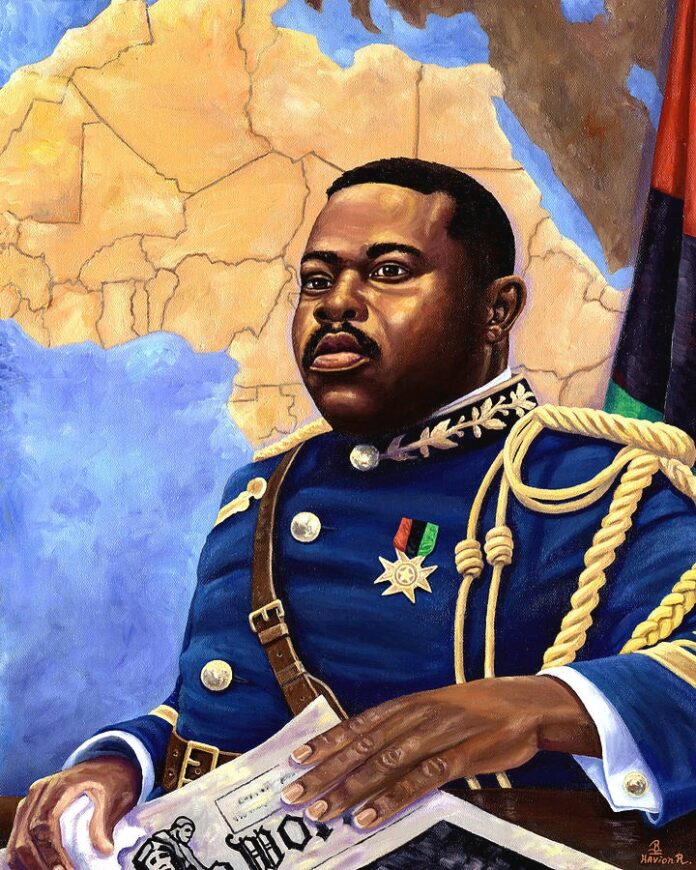June 10 marked the anniversary of the passing of Marcus Garvey, a towering figure in Pan-Africanism who died on June 10, 1940, in London. At just 52, Garvey left an indelible mark on the world, becoming one of the most influential Pan-Africanists in history. His legacy continues to inspire leaders like Dr. Kwame Nkrumah and Malcolm X, whose parents were ardent Garveyites.
Garvey’s journey began on August 17, 1887, in St. Ann’s Bay, Jamaica. The son of Marcus Garvey, Sr., a resolute stonemason, and Sarah Jane Richards, a dedicated domestic worker and farmer, young Marcus was imbued with determination and intellectual curiosity from an early age. His father’s extensive library became a sanctuary of learning, where Marcus absorbed the wisdom that would shape his future endeavors.
At 14, Garvey embarked on a printer’s apprenticeship, laying the groundwork for his ventures into journalism and publishing. His expanding political awareness led him to union activities in Kingston, where he witnessed the plight of marginalized workers firsthand.
In 1912, Garvey founded the Universal Negro Improvement Association (UNIA-ACL), a groundbreaking organization dedicated to uplifting people of African descent worldwide. Inspired by Booker T. Washington and the Pan-Africanist ideals of Edward Wilmot Blyden, Garvey articulated a bold vision of global Black solidarity and self-determination.
Garvey’s charismatic leadership propelled the UNIA to unprecedented heights, with chapters across the United States, the Caribbean, and beyond. Central to his agenda was promoting economic self-sufficiency and repatriating African descendants to their ancestral homeland. In 1916, he established a UNIA chapter in Harlem, the epicenter of Black cultural and intellectual life, where he launched the Black Star Line, a shipping company intended to facilitate trade among Black communities worldwide.
However, Garvey’s advocacy for Black empowerment drew ire from both internal and external adversaries. Prominent Black leaders, including W.E.B. Du Bois, criticized his separatist philosophy, while the FBI under J. Edgar Hoover sought to undermine his influence. In 1920, Hoover infiltrated the UNIA-ACL with an undercover agent, leading to Garvey’s imprisonment and derailing his dream of the Black Star Line.
In 1922, Garvey faced charges of mail fraud related to the Black Star Line. Despite allegations of prosecutorial misconduct, he served a prison sentence before being deported to Jamaica in 1927. Undeterred, Garvey continued his activism in Jamaica and later in London, seeking to reignite the flame of Pan-Africanism amidst a changing geopolitical landscape. Although his later years were marked by political marginalization and controversial alliances, Garvey’s legacy endured as a beacon of hope for generations of Black activists.
Marcus Garvey’s passing in 1940 did not mark the end of his legacy but the beginning of a new chapter in the ongoing struggle for Black liberation and empowerment. His message of pride, dignity, and self-determination continues to resonate with millions worldwide, a testament to the enduring power of one man’s vision to transform history.
The country of Ghana pays homage to Garvey by naming its shipping line the Black Star Line and its national soccer team the Black Stars, symbols of honor and remembrance for a man whose impact transcends borders and generations.


Simply desire to say your article is as astonishing.
The clearness for your post is just spectacular and that i can suppose you are knowledgeable on this subject.
Fine along with your permission let me to take hold of your feed to keep updated with impending post.
Thank you one million and please continue the gratifying work.